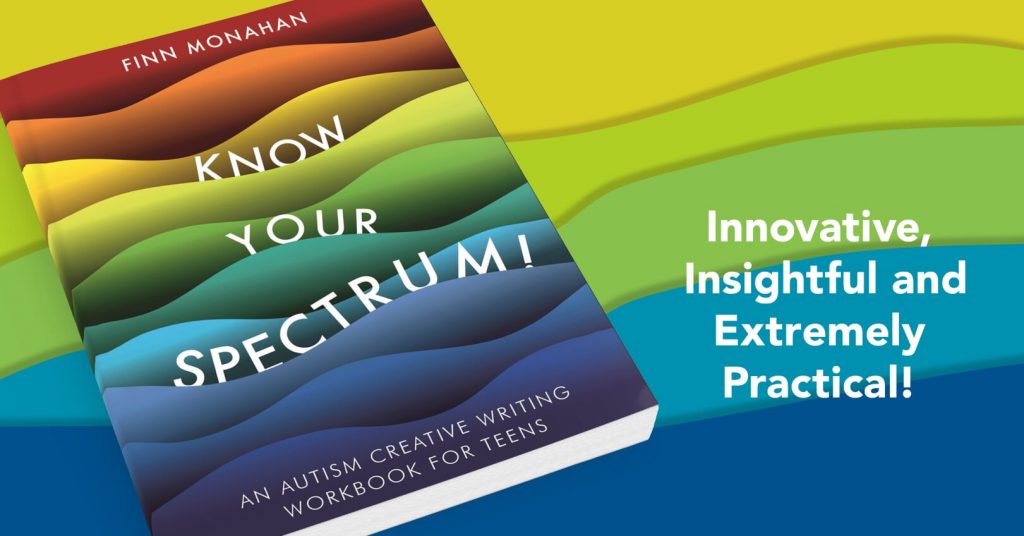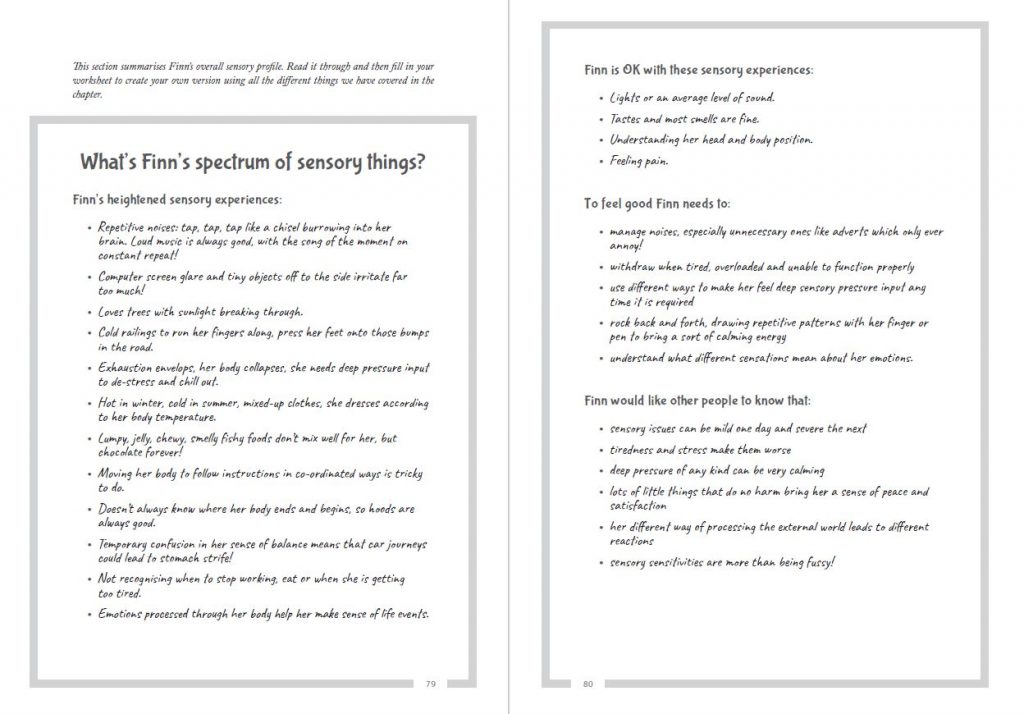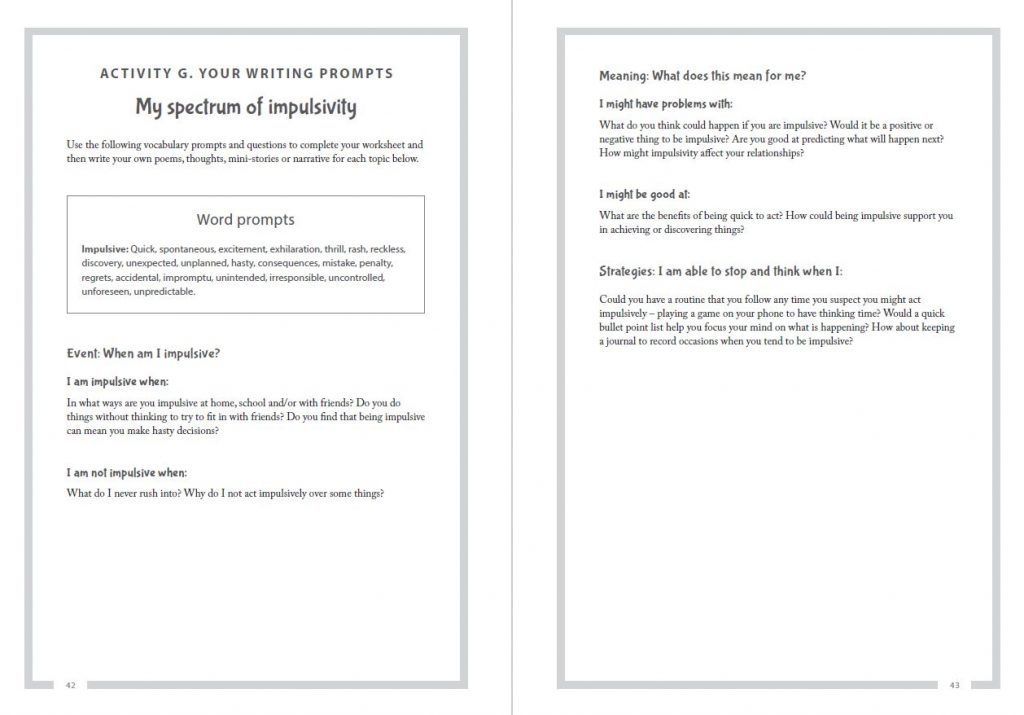Finn Monahan has put together a creative writing workbook to encourage teenagers with autism to draw their own personal conclusions about what autism means for them. By using creativity to explore and understand individual strengths and weaknesses, you can Know Your Spectrum!
Using examples of her own poetry here, Finn reflects on the intersections between autism, creativity and communication.
I wrote Know Your Spectrum! to help autistic teenagers understand who they are as an individual. I didn’t realise that I was autistic until I was 38! I found it really difficult to grow up without understanding that I was autistic and what that meant for me. I spent most of my life trying to figure out what was wrong with me. Wondering why I felt so different yet there was nothing that could be readily identified as a reason. The people around me were not aware of how I felt and I couldn’t really explain it as it seemed indefinable. It left me feeling isolated, gradually affecting my self-esteem. Looking back now I can see how the interaction between undiagnosed autism and my life experiences influenced my whole self-perception and mostly in a negative way. But that changed once I realised that I was autistic. I could piece myself together and see who I was for the first time.
Autism made sense. I made sense!
We all need to find out who we are, although being autistic means that there are fewer opportunities to learn from someone else who experiences life in the same way as us. The book allows the teenage readers to discover their spectrum of autism through comparing and contrasting themselves against me. The aim is to make autism more tangible on an individual basis for the teenage readers and their parents or teachers through a series of exercises with a creative writing element to further explore themes.
In the chapter on Processing Differences the topic of finding it hard to generalise knowledge is looked at. Being autistic can mean that it’s hard to transfer our knowledge from one situation to another to help us automatically know what to say or do. That can make coping with new situations or tasks difficult. This is a major aspect of my autism and I could never understand how other people knew what to do without having to work everything out from the beginning like me. The following poem taken from the book describes this process and hopefully the reader will be able to identify with my experiences and, in turn, begin to express their own stories.
Finn’s ability to generalise
Despite my thorough training
It seems I have no idea
Of what I have to say or do
In this particular situation.
I’ve got no mental templates
To guide me through these tasks
Every time
Is the first time
In whatever I do.
It does not matter
How much I know.
How long I have learnt it.
How hard I try.
I go right back to the start
To figure it all out again step by step
Then put all these parts into one whole picture in my mind.
For the one hundredth time.
Until I get to
One hundred and one!
I find poetry to be a very simple but effective way of communicating. I wrote the next poem ‘Words’ very quickly and sometimes that can bring a deeper sense of the emotions underneath. Social communication is something that I have always struggled with. Finding and articulating words has been the most difficult part of being me. I have always been conscious that I could not speak but I simply appeared to be extremely quiet or invisible. When I decided to write a poem about speaking these words flowed.
Words
The words struggle out
As I choke speak.
Leaves me a stranger
To those I am beside.
You think you know what that means.
How it translates across time.
But I have no words to take you
To the places I know
When I am once more
On my own.
So will I leave as I arrived?
Unheard.
Or will you listen
Beyond silence
To the words on the other side.
I hope this book serves to help autism be heard.
Find out more about Know Your Spectrum!
If you would like to read more articles like this and get the latest news and offers on our books about autism, why not join our mailing list? We can send information by email or post as you prefer. You may also be interested in liking our Autism, Asperger’s and related conditions Facebook page.


